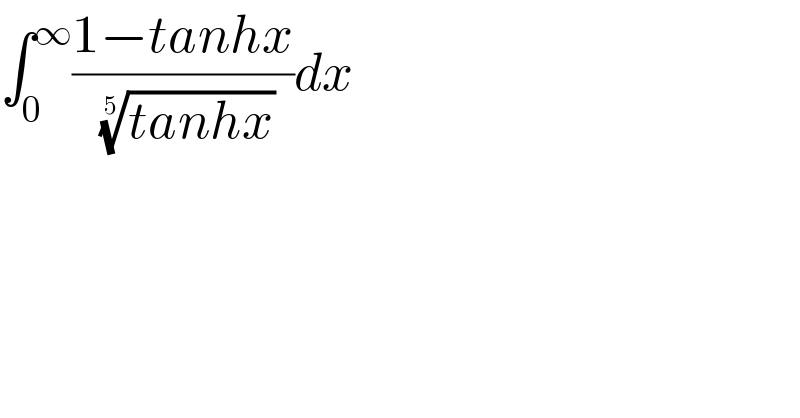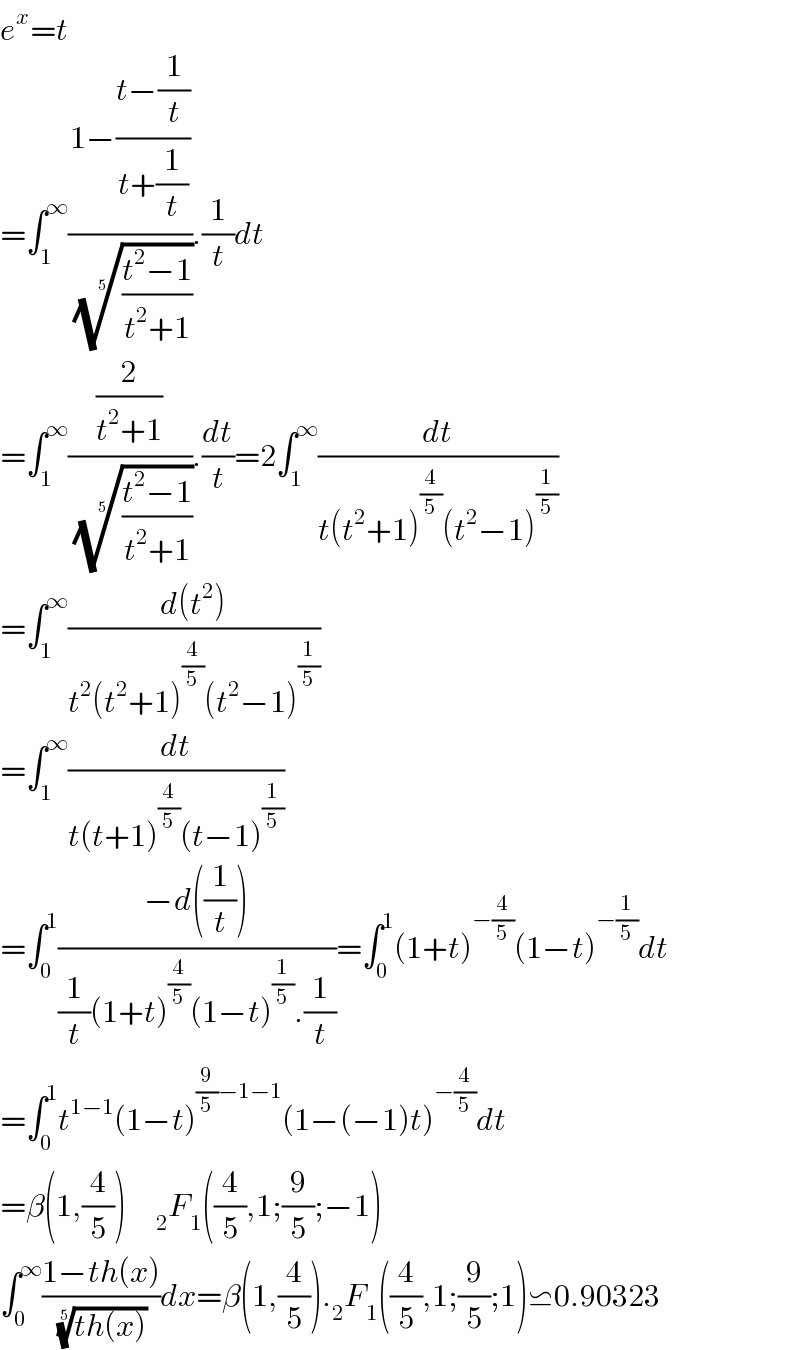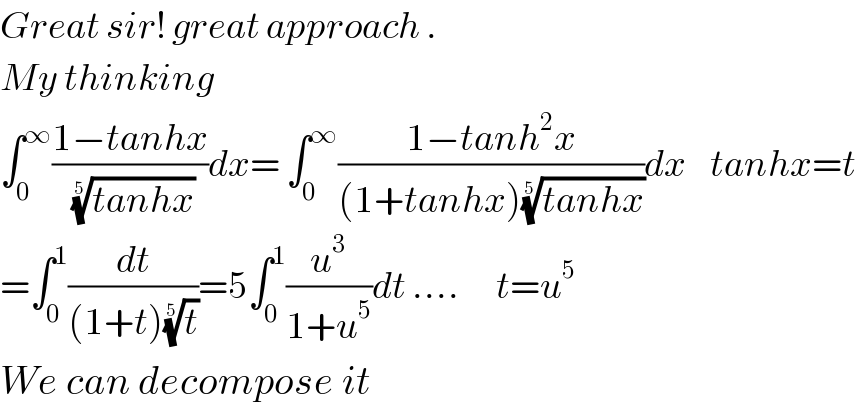
Question and Answers Forum
Question Number 125708 by Dwaipayan Shikari last updated on 13/Dec/20

Answered by mindispower last updated on 13/Dec/20

Commented by Dwaipayan Shikari last updated on 13/Dec/20

Commented by mindispower last updated on 13/Dec/20

